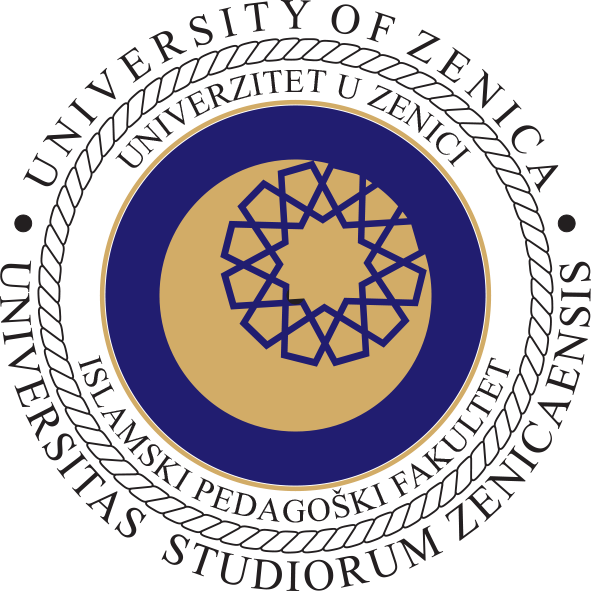MORAL BELIEFS AND ATTITUDES TOWARDS PATTERNS OF RESOLVING CONFLICTS IN THE LIGHT OF SOCIAL CAPITAL THEORY
The aim of this paper is to contribute to the understanding of the theoretical construct of a social capital. The social capital is understood as one of the relevant prognostic constructs for the results of both transitional and integrational processes in our societies. Considering that the environment we live in is evident in the process of (re)ac...
By Edina Vejo, Nataša Mirolović-Vlah
LEARNING AND TEACHING – BRAIN-BASED LEARNING MODEL
The paper present a new pedagogical issue known as brain-based learning. The main determinants of the phenomenon have been pointed out to question the possibilities of its methodical impact. The phrase brain-based learning is used as a term for the way of understandig a learning process. Various publications of an American author Eric Jensen's boo...
By Amina Isanović
PROGNOSTIC APPROPRIATENESS OF THE SET OF INSTRUMENTS APPLIED AT THE ENTRANCE EXAM AT THE SOCIAL PEDAGOGY DEPARTMENT AT THE ISLAMIC PEDAGOGICAL FACULTY OF ZENICA
A set of instruments applied at entrance exams for the last two academic years has been rather comprehensive in order to provide good insight into candidates’ skills and characteristics. For the reasons of rationalizing testing instruments which are to be used at entrance exams at this faculty, and for the aim of the research, it is necessary to ex...
By Anela Hasanagić
THE METHODOLOGY OF DREAM INTERPRETATION (TE'VILU-LEHADIS) IN THE LIGHT OF ISLAMIC TRADITION
Being a Qur’anic-Hadith category the interpretations of dreams is also a part of Islamic belief and practice. Dreams are not connected to people but to their meaning and as such they must not be a reason for repulsing people. Generally speaking, all dreams should be positively interpreted. Making up and magnifying dreams is a great sin. Bad dreams ...
By Mensur Valjevac
THE CONTRIBUTION OF THE FOUR IMAMS TO THE HADITH SCIENCE
Ebu Hanife, Malik, Shafiya and Ahmad are the leading spirits of Islamic thought. Their reasoning in the domain of Shari’ah made them the unavoidable sources for all generations of Muslims throughout history. The most obvious proof for that is the four great law schools that have endured the time and that had been founded and defined by these four g...
By Šefik Kurdić
THE BASICS OF KUR'ANIC ANTHROPOLOGY
The Noble Qur’an, as the primary source of Islam, speaks about a man (Arab, insan) in its numerous ayats. In fact, a man is the focal point of the Qur’an for everything that’s revealed in the Qur’an is revealed to a man and is about a man. A man, no matter what way we observe him, is the most complex category of existence in this phenomenal world. ...
By Safvet Halilović
BASIC PRINCIPLES OF IJJTIHAD IN ISLAMIC LAW (FIQH) AND THE IMPORTANCE OF THEIR APPLICATION IN THE MODERN AGE
This paper elaborates ten crucial principles that should be the basis for ijjtihad in Islamic law (Fikh): 1. the principle of active ijjtihad, 2. the principle of considering the entire fikh heritage and braking loose with a blind devotion to any of the mezhebs, 3. the principle of understanding the essence of life conditions and circumstances, 4. ...
By Šukrija Ramić
BRIBERY AND CORRUPTION THROUGH THE PRISM OF THE QUR'AN AND THE SUNNAH
For a long time bribe and corruption have complicated social relations throughout the world, and very early the have become a part of Muslim social life. For some scientists the existence of these phenomena was the key reason for the decline of the Ottoman Empire. This paper does not discuss neither the history of bribe and corruption in the Muslim...
By Esmir Halilović
THE REPRESENTATION OF LANGUAGE AND LINGUISTIC DISCIPLINES IN COMMENTING ON THE QURAN OF MEHMED HANDZIC
Mehmed ef. Handžić (1906-1944) is a unique Bosnian alim (scholar) who wrote great many diverse works. His uniqueness lies partly in his being the only one, in the modern history of Bosnian Muslims, who annotated the Noble Qur’an in Arabic and who treated only the ayats with Shari’ah (legal) themes (ajatul-ahkam). In the field of Taffssir his most i...
By Halil Mehtić
KNOWLEDGE MANAGEMENT AND BALANCED SCORECARD CONCEPT PRINCIPLES APPLICATION AS AN ACCELERANT OF ORGANIZATIONAL EFFICACY
A new strategic management system, if it’s adequately implemented, can change an entire organization in a way to became more effective and efficient, and the most of strategic management authors and practicers agree that implementation of an organizational strategy is more difficult than its formulation. In today’s dynamic, highly competitive envir...
By Elvir Čizmić, Izet Pehlić



